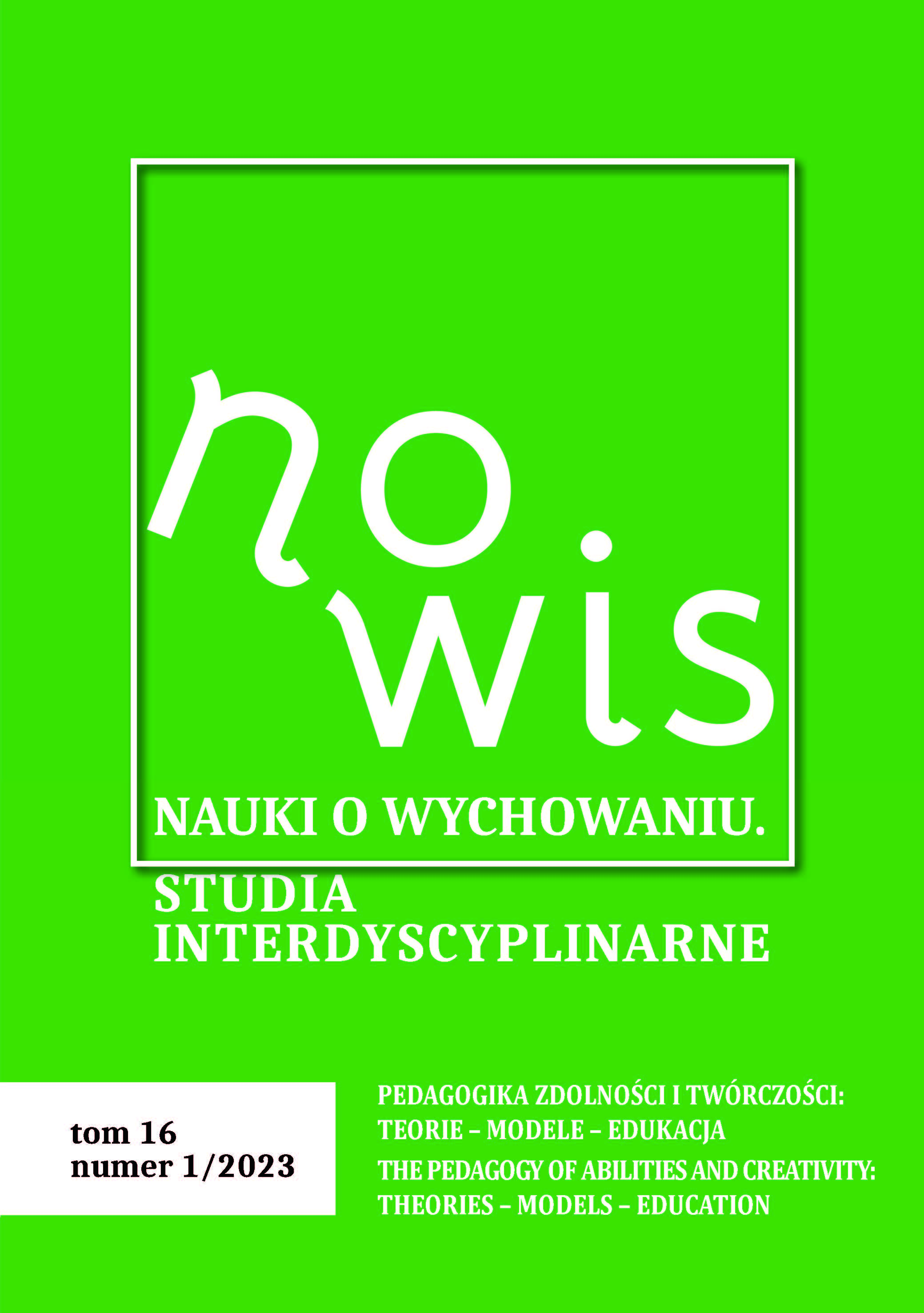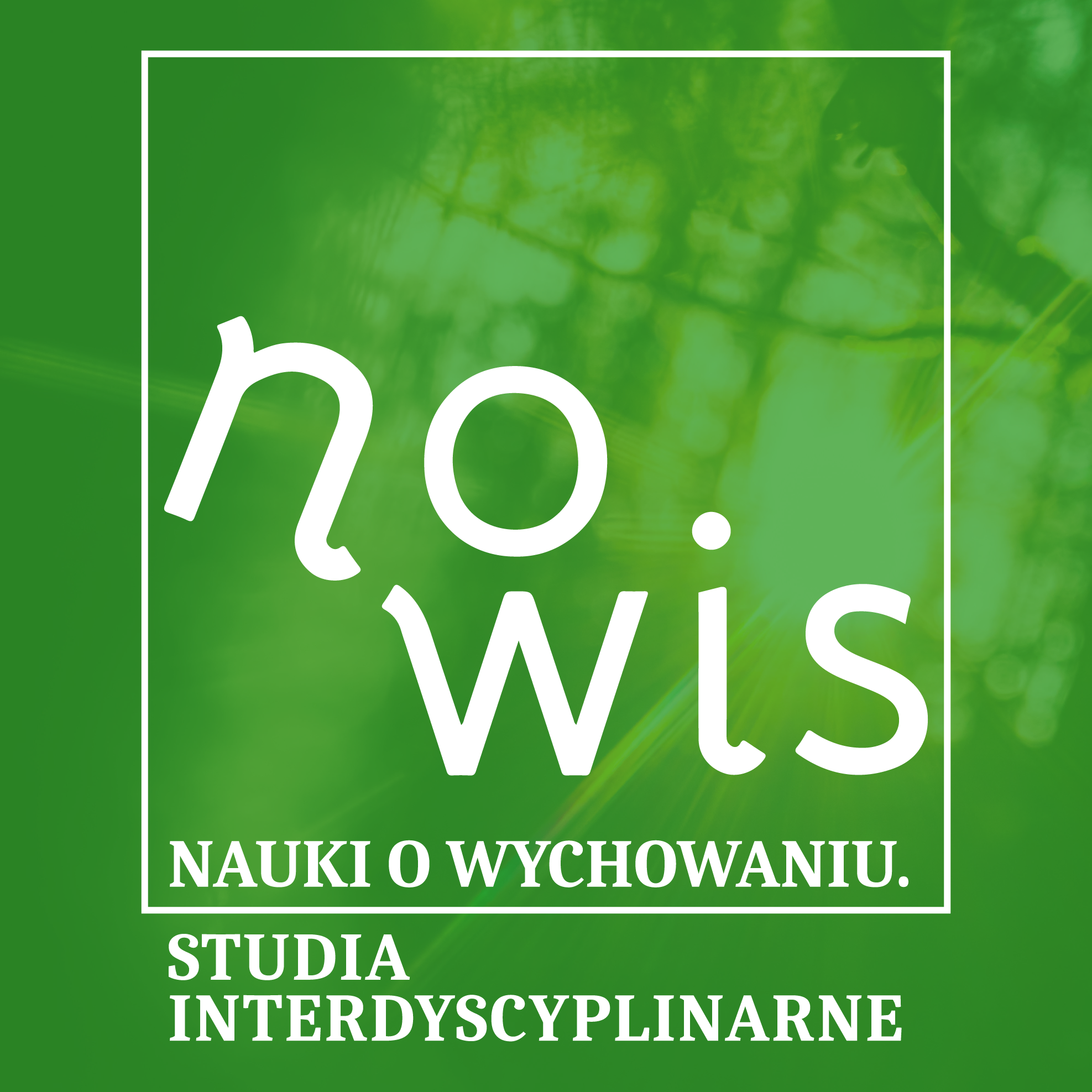The Gifted Student in the Post-Pandemic Situation
DOI :
https://doi.org/10.18778/2450-4491.16.05Mots-clés :
gifted students, COVID-19, lockdown, remote education, emergency e-learningRésumé
This article focuses on the functioning of gifted students during and after the COVID-19 pandemic. The subject of interest are the developmental opportunities created for them during online learning, the well-being of students, the problems they were confronted with, and above all – their condition after the lockdown ended. This issue was explored by analysing research on gifted students carried out during and after the pandemic in Poland as well in other countries, by studying ministerial recommendations regarding working with gifted students and materials for teachers, as well as by comparing the situation of students during the lockdown with their needs presented in scientific literature. On this basis, conclusions were drawn regarding the impact of the pandemic on the functioning of gifted students, while taking into account the significant diversity of this group as well as the fact that, apart from the often analysed negative consequences, lockdown also had some beneficial effects. The observations made should be taken into consideration after coming back to full-time education; the article contains specific suggestions for pedagogical practice.
Références
Abakumova I., Bakaeva I., Grishina A., Dyakova E. (2019) Active Learning Technologies in Online Education of Gifted Students, “International Journal of Cognitive Research in Science, Engineering and Education”, no. 7(1), pp. 85–94, https://doi.org/10.5937/ijcrsee1901085A
View in Google Scholar
DOI: https://doi.org/10.5937/IJCRSEE1901085A
Aboud Y. (2021) Challenges to Gifted Education in the Covid-19 Pandemic about Online Learning in Saudi Arabia from the Perspective of Gifted Students and Parents, “Journal of Gifted Education and Creativity”, no. 8(1), pp. 11–21.
View in Google Scholar
Badura-Madej W. (1996) Podstawowe pojęcia teorii kryzysu i interwencji kryzysowej in: Wybrane zagadnienia interwencji kryzysowej, W. Badura-Madej (ed.), Warszawa, Wydawnictwo Uniwersytetu Śląskiego, pp. 15–31.
View in Google Scholar
Chan H. W., Ignacio A., Rebello C., Cupchik G. (2022) The Therapeutic Value of Creative Art-Making During the Covid-19 Pandemic, “Journal of Gifted Education and Creativity”, no. 9(1), pp. 93–113.
View in Google Scholar
Chrzanowska I. (2015) Uczeń zdolny – uczniem ze specjalnymi potrzebami edukacyjnymi? Uczeń ze specjalnymi potrzebami edukacyjnymi – uczniem zdolnym?, „Studia Edukacyjne”, no. 34, pp. 123–134, https://doi.org/10.14746/se.2015.34.7
View in Google Scholar
DOI: https://doi.org/10.14746/se.2015.34.7
Długosz P. (2020) Blaski i cienie zdalnej edukacji wśród uczniów z obszarów wiejskich in: Wyzwania dla edukacji w sytuacji pandemii COVID-19, N. G. Pikuła, A. Jagielska, J. M. Łukasik (eds.), Kraków, Wydawnictwo Uniwersytetu Pedagogicznego im. Komisji Edukacji Narodowej w Krakowie, series: Biblioteka Instytutu Spraw Społecznych Uniwersytetu Pedagogicznego im. Komisji Edukacji Narodowej w Krakowie, vol. 13, pp. 71–94.
View in Google Scholar
Długosz P. (2021) Kondycja uczniów powracających do szkół po zdalnej edukacji. Przypadek Polski i Ukrainy, „Youth in Central and Eastern Europe”, vol. 8(2), pp. 34–42, https://doi.org/10.24917/ycee.2021.12.34-42
View in Google Scholar
DOI: https://doi.org/10.24917/ycee.2021.12.34-42
Domagała-Zyśk E. (ed.) (2020) Zdalne uczenie się i nauczanie a specjalne potrzeby edukacyjne. Z doświadczeń pandemii COVID-19, Lublin, Wydawnictwo Episteme.
View in Google Scholar
Doucet A., Netolicky D., Timmers K., Tuscano J. (2020) Thinking about Pedagogy in an Unfolding Pandemic. An Independent Report on Approaches to Distance Learning During COVID19 School Closures, [online:] https://issuu.com/educationinternational/docs/2020_research_covid-19_eng (access: 2.11.2022).
View in Google Scholar
Dźwigoł-Barosz M. (2015) Rola inteligencji emocjonalnej lidera biznesu, „Zeszyty Naukowe Politechniki Śląskiej”, no. 83, pp. 143–152.
View in Google Scholar
Gierczyk M. (2019) Uczeń zdolny w polskiej i angielskiej przestrzeni szkolnej. Studium komparatystyczne, Katowice, Wydawnictwo Uniwersytetu Śląskiego.
View in Google Scholar
Grewenig E., Lergetporer P., Werner K., Woessmann L., Zierow L. (2021) COVID-19 and Educational Inequality: How School Closures Affect Low- and High-Achieving Students, “European Economic Review”, no. 140, https://doi.org/10.1016/j.euroecorev.2021.103920
View in Google Scholar
DOI: https://doi.org/10.1016/j.euroecorev.2021.103920
Hollingworth L. S. (1942) Children above 180 IQ Stanford-Binet: Origins and development, Yonkers-on-Hudson, NY, World Book, https://doi.org/10.1037/13574-000
View in Google Scholar
DOI: https://doi.org/10.1037/13574-000
Kaya M. G., Akgül G. (2022) Evaluating Online Education for Gifted Students: Parents’ Views, “Gifted Education International”, no. 38(1), pp. 138–158, https://doi.org/10.1177/02614294211065089
View in Google Scholar
DOI: https://doi.org/10.1177/02614294211065089
Klein A. G. (2000) Fitting the School to the Child: The Mission of Leta Stetter Hollingworth, Founder of Gifted Education, “Roeper Review”, no. 2(23), pp. 197–203, https://doi.org/10.1080/02783190009554075
View in Google Scholar
DOI: https://doi.org/10.1080/02783190009554075
Knapton S. (2022) Lockdown Effects Feared to Be Killing More People than Covid, “The Telegraph”, 18.08.2022, [online:] https://www.telegraph.co.uk/news/2022/08/18/lockdown-effects-feared-killing-people-covid/ (access: 2.11.2022).
View in Google Scholar
Ladson-Billings G. (2021) I’m Here for the Hard Re-Set: Post Pandemic Pedagogy to Preserve Our Culture, “Equity & Excellence in Education”, no. 54, pp. 68–78, https://doi.org/10.1080/10665684.2020.1863883
View in Google Scholar
DOI: https://doi.org/10.1080/10665684.2020.1863883
Limont W. (2012) Uczeń zdolny. Jak go rozpoznać i jak z nim pracować, Sopot, Gdańskie Wydawnictwo Psychologiczne.
View in Google Scholar
Nęcka E. (2003) Inteligencja: geneza – struktura – funkcje, Gdańsk, Gdańskie Wydawnictwo Psychologiczne.
View in Google Scholar
Pac-Marcinkowska K. (ed.) (2020) Zdolni zdalnie, series: Skrypty Metodyczne, Wrocław, Dolnośląski Ośrodek Doskonalenia Nauczycieli we Wrocławiu.
View in Google Scholar
Potts J. A. (2018) Profoundly Gifted Students’ Perceptions of Virtual Clasrooms, “Gifted Child Quarterly”, no. 63, pp. 58–80, https://doi.org/10.1177/0016986218801075
View in Google Scholar
DOI: https://doi.org/10.1177/0016986218801075
Ptaszek G., Stunża G., Pyżalski J., Dębski M., Bigaj M. (2020) Edukacja zdalna: co stało się z uczniami, ich rodzicami i nauczycielami?, Gdańsk, Gdańskie Wydawnictwo Psychologiczne.
View in Google Scholar
Pyżalski J. (2021) Zdrowie psychiczne i dobrostan młodych ludzi w czasie pandemii COVID-19 – przegląd najistotniejszych problemów, „Dziecko Krzywdzone. Teoria, Badania, Praktyka”, no. 20(2), pp. 92–115.
View in Google Scholar
Pyżalski J., Poleszak W. (2022) Polish Teachers’ Stress, Well-Being and Mental Health During COVID-19 Emergency Remote Education – A Review of the Empirical Data, „Lubelski Rocznik Pedagogiczny”, no. 41(2), pp. 25–40, https://doi.org/10.17951/lrp.2022.41.2.25-40
View in Google Scholar
DOI: https://doi.org/10.17951/lrp.2022.41.2.25-40
Renzulli J. (2021) The Three Ring Conception of Giftedness: A Change in Direction from Being Gifted to the Development of Gifted Behaviors in: Conceptions of Giftedness, R. J. Sternberg, J. E. Davidson (eds.), pp. 246–279, New York, Cambridge University Press, https://doi.org/10.1017/CBO9780511610455.015.
View in Google Scholar
DOI: https://doi.org/10.1007/978-3-030-56869-6_19
Rozporządzenie Ministra Edukacji Narodowej z dnia 9 sierpnia 2017 r. w sprawie zasad organizacji i udzielania pomocy psychologiczno-pedagogicznej w publicznych przedszkolach, szkołach i placówkach (z późniejszymi zmianami), Dz.U. 2022 poz. 1594.
View in Google Scholar
Rozporządzenie Ministra Edukacji Narodowej z dnia 11 marca 2020 r. w sprawie czasowego ograniczenia funkcjonowania jednostek systemu oświaty w związku z zapobieganiem, przeciwdziałaniem i zwalczaniem COVID-19, Dz.U. 2020 poz. 410.
View in Google Scholar
Sasin M. (ed.) (2021) Kultura i twórczość w czasach zarazy, Łódź, Wydawnictwo Uniwersytetu Łódzkiego.
View in Google Scholar
Szmidt K. J. (2001) Twórczość i pomoc w tworzeniu w perspektywie pedagogiki społecznej, Łódź, Wydawnictwo Uniwersytetu Łódzkiego.
View in Google Scholar
Trempała E. (1999) Edukacja ustawiczna – wymóg współczesności in: A. Przecławska, W. Theiss (eds.), Pedagogika społeczna – pytania o XXI wiek, Warszawa, Wydawnictwo Akademickie „Żak”, pp. 153–164.
View in Google Scholar
Gałązkiewicz K. (2022) Liczba niecovidowych zgonów nadmiarowych zaczyna się zrównywać ze zgonami covidowymi, [online:] https://portal.abczdrowie.pl/rosnie-dlug-zdrowotny-wy-wolany-pandemia-koronawirusa-przez-brak-miejsc-w-szpitalach-umiera-coraz-wiecej-pacjentow-ze-schorzeniami-innymi-niz-covid-19 (access: 03.01.2022).
View in Google Scholar
Pyżalski J., Walter N. (2021) Edukacja zdalna w czasie pandemii COVID-19 w Polsce – mapa głównych szans i zagrożeń. Przegląd i omówienie wyników najważniejszych badań związanych z kryzysową edukacją zdalną w Polsce, [online:] https://operon.pl/Edukacja_zdalna_w_czasie_pandemii_COVID-19.pdf (access: 27.11.2022).
View in Google Scholar
Raport Ministra Edukacji Narodowej. Zapewnienie funkcjonowania jednostek systemu oświaty w okresie epidemii COVID-19, Warszawa, June 2020, [online:] https://www.gov.pl/web/edukacja-i-nauka/raport-ministra-edukacji-narodowej-na-temat-funkcjonowania-szkol-i-placowek-oswiatowych-w-okresie-covid-19 (access: 2.11.2022).
View in Google Scholar
Tędziagolska M., Haczewska-Wierzbicka K. (2021) Sytuacja uczniów z niepełnosprawnościami w czasie pandemii COVID-19. Raport z badania jakościowego, Warszawa, researcheye, [online:] https://bip.brpo.gov.pl/sites/default/files/2022-08/Edukacja%20uczni%C3%B3w%20z%20niepe%C5%82nosprawno%C5%9Bciami%20w%20cza-sie%20pandemii.pdf (access: 3.11.2022).
View in Google Scholar






 Le site web de la revue, hébergé par l'équipe éditoriale de NOWIS se trouve sur la plate-forme Index Copernicus:
Le site web de la revue, hébergé par l'équipe éditoriale de NOWIS se trouve sur la plate-forme Index Copernicus: 





